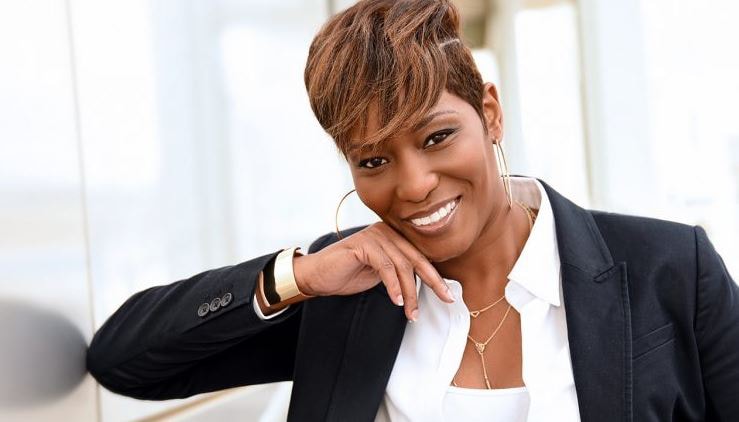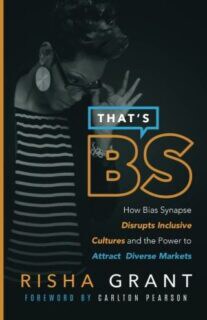12 août 2020
Author Risha Grant calls BS. Here's why we should all listen.
CDW and Cisco Canada discussed new Risha Grant book "That's BS! How Bias Synapse Disrupts Inclusive Cultures and the Power to Attract Diverse Markets

Recently, CDW and Cisco Canada cametogether (virtually of course, thanks to Cisco Webex) for a book club with aunique purpose. Sponsored by the Women of Cisco in Canada, the event was arrangedto discuss That's BS! How Bias Synapse DisruptsInclusive Cultures and the Power to Attract Diverse Markets by Risha Grant.
Why did we choose todiscuss this book? Well, let's take a look at Cisco's company missionstatement: Powering an inclusivefuture for all,which provides Cisco's intentions as a company, and how they want technology toimpact the world.
But mission statements alone mean verylittle unless you are committed to real action. For example, Cisco Canadarecently signed the Black North pledge created to removethe anti-Black systemic barriers negatively affecting the lives of BlackCanadians. It's a small step towards the more inclusive and diverse future weimagine. There is much work to be done.
The truth is, we all have unconscious bias even if we don't know it. So, we all need to be part of the solution. This is a prevailing theme in Grant's book and the reason we all came together.

How toovercome unconscious bias
We werehonored to be joined for the event by the author herself. Risha Grant is the founder and CEO of anaward-winning diversity consulting and communications firm. Her mission is toshow companies how diversity communication strategies, tactics and training cancreate an inclusive culture in every company and community and, as a result,increase the bottom line.
Grantreminded us that organizations do not usually have diversity problems. Moreoften, we have people problems and we need to focus our energy at thatlevel. She talks about how our actions may negatively affect others, eventhough it may not be our intention.
To get started, she outlines three stepsto overcome unconscious bias:
- Identifyyour BS (Bias synapse, those hidden biases we all have).
- Ownyour BS: Don't be afraid. Remember, we're all in the same boat.
- Confrontit and be intentional in order to create change.
Progress can be messy; and we need to encourage these toughconversations in the workplace. We need to bring people together and prepare tobe uncomfortable. Only then can we make positive progress.
As Grant writes in the book, Diversity isn't about us vs. them, but how our interconnectedness plays a part in a better quality of life for all of us. There is no them, it is only us. For more on this important topic, please join CDW and Cisco Canada for the next session in Cisco's webinar series, Living Room Talks: Inclusive Leadership from Intention to Action.

